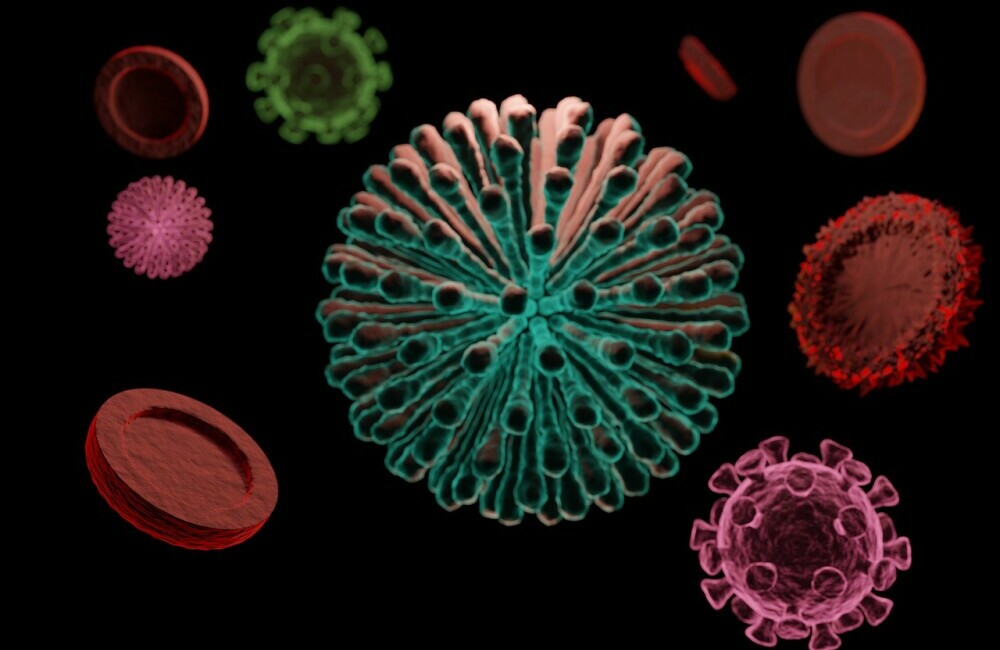Unlocking the Mysteries of Intermittent Fasting and Immunity
Let us see in ” Intermittent Fasting And The Immune System ” how Intermittent Fasting is crucial for the support of our immune systems. Intermittent fasting is one trend that has attracted much attention in the health and wellness community.
The Rising Popularity of Intermittent Fasting
Intermittent fasting, a dietary approach alternating between eating and fasting periods, has gained popularity. Its adaptability and ease of customization, which allow people to incorporate their fasting routines into their daily lives, are significant factors in its widespread appeal. This health philosophy emphasizes extending longevity and enhancing wellbeing rather than just weight loss.
Potential Impact on the Immune System: A Brief Overview
Our eating habits can significantly affect our immune system, which is our body’s natural defense against disease. Research has shown that intermittent fasting has been linked to improved immune response. Fasting triggers our body’s cellular repair mechanisms, such as autophagy, which is the breakdown and elimination of accumulated, faulty, or outdated proteins from cells. This purging procedure might boost our defenses against disease and boost our immunity.
What Recent Science Says About Fasting and Health
Beyond helping people lose weight, recent scientific research has revealed additional potential advantages of intermittent fasting. Studies suggest it may improve metabolic health, prevent disease, and even lengthen life. Furthermore, studies have shown intermittent fasting enhances stress resilience, reduces inflammation, and supports brain health.
While there is encouraging scientific evidence regarding intermittent fasting’s immune-boosting effects, it is crucial to remember that each person’s body reacts differently.
Fasting intermittently is more than just a fad. It is a lifestyle decision that could enhance our wellbeing and health. As we continue to solve its mysteries, the secret to long life and strong immunity has always been within our grasp.
Intermittent Fasting 101: Core Concepts and Practices
Explanation of Intermittent Fasting (IF)
Intermittent fasting is a way of eating that alternates between eating and not eating. It is more concerned with when you eat than with what you consume. This simple shift in eating patterns has been associated with a number of health benefits, including weight loss and enhanced cognitive function, making it a popular option for people seeking a flexible and long-term approach to maintaining their wellness.
Common Intermittent Fasting Methods
There are several approaches to intermittent fasting, and each has its own timetable. The three most widely used methods are Eat-Stop-Eat, 5:2, and 16/8. The 16/8 method limits the daily eating window to 8–10 hours by requiring 14–16 hours of fasting daily. The 5:2 approach calls for eating regularly five days a week and restricting caloric intake to 500–600 calories on the other two. The Eat-Stop-Eat technique calls for one or two 24-hour fasts per week. Every strategy has benefits of its own, and people can choose the one that best fits their goals for their health and way of life.
The Science Behind Fasting and Cellular Autophagy
Autophagy is a cellular self-cleaning mechanism that breaks down and recycles damaged molecules and cellular components. It is triggered by fasting. The rate of autophagy rises dramatically during fasting periods. Studies indicate that this process may provide protection against a range of diseases, such as cancer and neurodegenerative disorders, and is essential for the health and longevity of cells.
The Immune System Explained: Your Body’s Defense Network
Components of the Immune System
The body uses the immune system, a sophisticated network of tissues, cells, and organs, to protect itself from harmful invaders. The immune system consists of specialized organs like the spleen, immune cells like white blood cells, and physical barriers like the skin. Every element is essential to locating, destroying, and identifying pathogens that risk our health.
How the Immune System Fights Infections
The immune system activates in response to pathogen entry. White blood cells that identify and destroy invaders include macrophages and lymphocytes. Antibodies that bind to pathogens and neutralize or mark them for removal are produced by B cells. The blood’s complement system, a collection of proteins, helps phagocytic cells and antibodies remove pathogens and injured cells from the body.
The Importance of a Healthy Immune System

A healthy immune system is necessary for overall wellbeing. It aids in wound healing and illness recovery and shields us from disease. A healthy diet, consistent exercise, enough sleep, and stress reduction can all support a robust immune system. Research indicates that habits like intermittent fasting may benefit immune health.
Two essential healthy lifestyle elements are immune system health and intermittent fasting. By comprehending and applying these techniques, we can proactively strive towards enhanced wellbeing and longevity. As we investigate the science underlying these practices, we might discover that achieving optimal health is more within our control than we ever thought.
Fasting and Immune Cell Regeneration: The Link
Studies on Fasting and Regeneration of Immune Cells
Recent scientific studies have revealed a fascinating connection between fasting and immune cell regeneration. Long-term fasting lowers the body’s immune cell count while encouraging stem cells to produce new immune cells, according to human and animal research. Immune cell regeneration is a process that may improve the body’s defenses against illnesses and infections.
The Role of Fasting in Reducing Inflammation

The immune system’s natural reaction to damage or infection is inflammation. However, a number of health issues can arise from persistent inflammation. Research has shown that fasting reduces inflammation. It can improve general health by lowering pro-inflammatory marker levels and increasing the synthesis of anti-inflammatory compounds.
Possible Mechanisms: How Fasting May Trigger Immune Cell Renewal
Researchers are still figuring out the precise mechanisms by which fasting promotes the renewal of immune cells. However, another theory holds that the body starts burning fat for energy during a fast, using up its glucose reserves. This change in metabolism may cause cellular stress, which in turn sets off autophagy, a process by which cells recycle waste products and mend themselves. As a result, immune cells may regenerate.
Intermittent Fasting’s Effects on Chronic Diseases and Immunity
Impact of Fasting on Conditions like Diabetes and Obesity
Research has indicated that intermittent fasting has positive impacts on diabetes and obesity. It can lower blood sugar, increase insulin sensitivity, and promote weight loss. Given that weakened immune responses are associated with both diabetes and obesity, these effects may serve to indirectly boost immunity.
Chronic Diseases and Immune System Vulnerability
Chronic conditions like cancer, heart disease, and autoimmune disorders can weaken the body’s immune system and make it more vulnerable to infections. Fasting has the potential to lessen an individual’s immune system’s susceptibility to chronic diseases by enhancing metabolic health, lowering inflammation, and stimulating immune cell regeneration.
Evidence Supporting Fasting’s Role in Disease Management
Numerous studies back up the use of fasting in the treatment of illness. For example, studies have demonstrated that fasting can lessen the adverse effects of chemotherapy, delay the onset of autoimmune diseases, and even increase an animal’s longevity. Although further investigation is required, these results imply that fasting may be an effective strategy for promoting longevity and managing disease.
Fasting is more than just a method for losing weight. It is a lifestyle intervention that may increase longevity, strengthen immunity, and combat chronic illnesses. As we continue to solve the mysteries surrounding fasting, the benefits of this age-old practice are far more extensive than we first realized.
Real Stories, Real Results: Personal Experiences with Fasting and Immunity
Anecdotal Evidence: Individuals Sharing Their Experiences
Many people have shared their personal transformation stories in intermittent fasting. People worldwide have shared the benefits of fasting, ranging from increased energy to a more robust immune system. These personal accounts give the scientific research a human perspective, which helps to make the advantages of fasting more approachable and motivating.
Anecdotal Evidence’s Boundaries and the Need for Scientific Confirmation
While these firsthand accounts are fascinating, it is essential to remember that anecdotal evidence could be better. Experiences can differ widely from person to person, and what suits one may not suit another. Therefore, in addition to scientific research, these firsthand reports should be considered in order to gain a more comprehensive understanding of fasting and immunity.
Success Stories: What We Learn from Them
Even with their drawbacks, these success stories teach us a lot. They draw attention to how fasting can enhance wellbeing and health. They also offer helpful advice on how to incorporate difficulties, maintain motivation, and integrate fasting into a healthy life.
Potential Risks and Considerations in Intermittent Fasting
Understanding the Possible Adverse Effects
Despite its many potential advantages, intermittent fasting is not risk-free. Specific individuals may encounter adverse reactions such as weariness, cephalalgia, or shifts in mood, especially in the early phase of adjustment. If not adequately managed, prolonged fasting can also result in nutrient deficiencies.
Who Should Avoid Intermittent Fasting
Certain people, such as those with a history of eating disorders, women who are pregnant or nursing, and people with specific medical conditions, should not undertake intermittent fasting. Always get medical advice before beginning a new dietary regimen.
Best Practices for Safe Fasting
Adhering to safe fasting best practices reduces risks and maximizes benefits. This entails paying attention to your body, drinking plenty of water, eating nutrient-dense meals when you eat, and gently breaking your fast. Maintaining a balanced lifestyle with regular exercise, adequate sleep, and stress management is also critical.
Although intermittent fasting has many health advantages, there is not a one-size-fits-all answer. We can always make well-informed decisions about our health and wellbeing when we are aware of the relevant factors and potential risks and when we consider the experiences of others.
Expert Wellbeing: What Healthcare Professionals Say
Doctors and Nutritionists on Intermittent Fasting and Immunity
Doctors and nutritionists are among the healthcare professionals who have been closely monitoring the research on intermittent fasting and its possible effects on immunity. Numerous studies have reported encouraging outcomes, including decreased inflammation and an enhanced immune response. However, they do warn that additional study is required to fully comprehend the implications and create precise dietary recommendations.
Professional Guidelines for Incorporating Fasting into a Healthy Lifestyle
Healthcare experts stress the value of individualization when integrating intermittent fasting into a healthy lifestyle. It is advised to begin cautiously, possibly with shorter fasting intervals, and increase gradually as the body acclimates to it. They also emphasize how crucial it is to keep a balanced diet during eating times to guarantee that the body gets all the nutrients it needs.
The Importance of Medical Supervision in Certain Cases
Before beginning an intermittent fasting regimen, people with certain medical conditions, such as diabetes or heart disease, are strongly advised by healthcare professionals to seek medical supervision. This is to monitor any changes in health status and to ensure safety. People with a history of eating disorders and those who are pregnant or nursing should generally avoid fasting.
Although intermittent fasting has the potential to improve immunity and general health, there is no one-size-fits-all approach. You should consult your doctor to determine the best action based on your unique health status and lifestyle.
Embarking on Your Fasting Journey: Tips for Success
How to Start Intermittent Fasting Effectively and Safely
Starting an intermittent fasting journey can be intimidating, but it can go smoothly if you take the proper approach. First, ascertain your body’s needs and your desired level of health. Select a fasting technique that works for your way of life and begin slowly. Start with a 12-hour fast, for instance, and progressively extend the fasting window. Pay attention to your body and modify your fasting schedule accordingly. Always remember that finding a sustainable practice that improves your health is more important than trying to be flawless.
Incorporating Fasting into Your Daily Routine
It takes preparation and consistency to incorporate fasting into your daily routine. Based on your daily activities, determine the best times for you to eat and fast. You can eat early in the day and fast in the evening if you are a morning person. On the other hand, you might prefer to eat later in the day if you are a night owl. To prepare your body for the fasting period, make sure you are eating foods high in nutrients during your window of opportunity to eat. Remain hydrated, and keep in mind that non-caloric drinks like tea, coffee, and water are permitted during the fasting window.
Monitoring Your Immune Health: Tips and Tools
An essential aspect of your fasting journey is monitoring your immune system. Be mindful of your feelings. Are you more energized? Are you falling ill less frequently? These indicate that your immune system is functioning better. Routine examinations with your physician can also offer insightful information about the state of your immune system.
Additionally, various at-home testing kits measuring immune function markers are available. Remember that each person has a different body, so what suits one person may not suit another. Most importantly, pay attention to your body and exercise patience and consistency.
Finally, starting an intermittent fasting journey has the potential to be a life-changing event. It can strengthen your immunity, improve your general health, and raise your quality of life. Cheers to your fast!
I would love to receive your comments down below in case of any.



Wow, what an insightful and empowering read!
Thank you for shedding light on the incredible connection between intermittent fasting and the immune system. Your article beautifully elucidates how adopting this lifestyle not only promotes physical health but also bolsters our body’s natural defense mechanisms. The way you’ve broken down the science behind it all makes it incredibly accessible for readers of all backgrounds.
I’m truly inspired to incorporate intermittent fasting into my routine, knowing now the profound impact it can have on my overall wellness. Keep up the fantastic work of spreading knowledge and positivity!
Hi Chris,
Thanks for your kind comment. I am happy you liked my post. I am following Intermittent Fasting myself and I love it. It cleans the body. Autophagy and release of growth hormone are two great results of Intermittent Fasting. Thanks again Chris.
I have been looking at trying intermittent fasting for a while, especially now as it gets increasingly harder to lose weight in your 50s.
I had no idea that it was so good for your immunity and also has the potential to prevent diseases like cancer. I think it must be easier to do the majority of your fast at night when you sleep and simply eat later in the morning. I just can’t see how you lose weight if you still eat your lunch and dinner as normal. I am sure you also need to control how much you eat too.
Hi Michel,
Thanks for your comment, dear. Intermittent fasting is a miraculous way of living. It is not just depriving yourself of food. It is how to trigger autophagy, which protects against lots of diseases. But you will have to watch out. Once you break your fast, you should get all the nutrients your body needs. I have been practicing intermittent fasting for decades now. Since I was in my 20’s. Now, I am in my 50’s, just like you. Look at my picture. I recommend intermittent fasting to all. But after consulting your doctor, please.
This is a fascinating read, Sara. You have thoroughly researched this topic, and your view is truly mindful and holistic. Breaking such a dense article into much smaller sections helps make it easier to read. I like your physiological explanations, too.
So, do you practice IF, and if so, what results have you noticed?
I practise it from time to time and do benefit, but I think the benefits are made even greater if it is combined with mindful practices like meditation or self-reflection. I know of some cases where very busy people try to do this on a full workload, and the results are not so good because they are weakened and their stress levels are exacerbated.
I think you will agree that the mind must be calm and creative for the body to truly reap the rewards of IF.
Great article.
Blessings & Success.
Linden
Hi Linden,
Many thanks for your kind comment. Yes, I have been practicing IF for over 30 years now. Actually, I practice the OMAD way (One Meal a Day). And actually, it does miracles. It cleans the body and gives you a much younger look. It is great and protects the body against lots of diseases because of autophagy as it fights against cancer. This is the best way of living ever.
Fasting is a fascinating concept that has been around forever. You are right, humanity is starting to discover its benefits only recently. Strangely, such a concept has not been a research subject before, and we have only witnessed its popularity recently.
I enjoyed reading your article, which has captured the topic in great detail and from different angles.
Hi Investor,
Thanks for your comment. I am very glad that you found my article beneficial and informative. Yes, Intermittent Fasting is a great way of living. I have been on it for 3 decades now, and I am getting a lot of benefits out of it.
Thanks again for your comment. Take care.